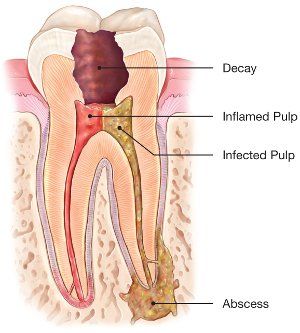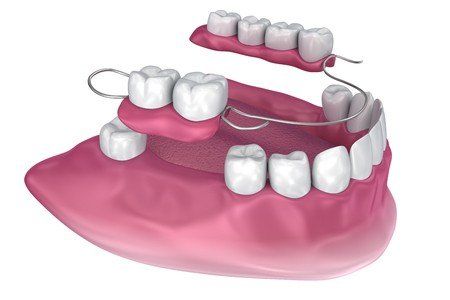Treatments available
We offer complete dental services, including:
- Family dentistry
- White and silver fillings
- Non-invasive cosmetic veneers
- Crowns and bridges
- Dental surgery and extractions
- Dental cleaning
- Removable appliances
- Prosthodontics
- Whitening
- Root canal treatment
- Gum treatment
- Digital X-rays
- Snoring/sleep apnea treatment
IMPROVE YOUR SMILE WITH NON-INVASIVE COSMETIC VENEERS
If you want to improve your smile, consider cosmetic veneers that do not involve drilling or cutting teeth. In many cases we are able to close spaces and provide the appearance of straight teeth, all without the use of braces. We will evaluate your front teeth and determine if non-invasive veneers are right for you.
DIGITAL X-RAYS
For accurate and convenient imaging, our offices now use digital x-rays. This new format considerably reduces the amount of radiation used. It allows for more accurate diagnosis while being better for the environment. By having the most accurate imaging and information, you can rest assured know that you will get the best course of dental treatment.
TREATMENT FOR HEADACHES AND JAW PAIN
BOOK YOUR APPOINTMENT
Plan your visit to our dental clinic.
Root Canal & Periodontal Treatment
If you are experiencing exceptional tooth pain that is affecting your ability to chew food, drink water or even just talk, it is a sign that you are experiencing a deep infection in your tooth. At the dental clinic of Dr. Robert Berlin, we offer root canal treatments for Etobicoke patients. During this procedure, we painlessly remove the infected material from the root of your tooth and then seal the root and fill the tooth with a temporary or permanent restoration.
PERIODONTAL TREATMENTS TO MAINTAIN HEALTHY GUMS
Our team is committed to maintaining healthy gums for our patients. People from throughout the Lakeshore communities come to us for our focus on periodontal health. Without healthy gums and supporting bones, our teeth are at risk for increased bleeding and disease. We provide careful evaluation of the gums and bone to determine if gum disease (periodontitis) is developing and we will recommend treatments as required.
SIGNS OF PERIODONTAL PROBLEMS
- Red or swollen gums
- Visibly receding gums
- Increased thermal sensitivity
- Bad breath
- Loose teeth
- Excessive bleeding while cleaning
SCALING TO REMOVE DEPOSITS UNDER THE GUMS
TMJ/Headache
If you suffer from head, facial, jaw and/or tooth pain, you may be suffering MFPD (myofascial pain dysfunction) also sometimes known as TMJ. The team at Dr. Berlin’s clinic has considerable experience in treating this problem and treatment will begin with an evaluation of the facial muscle exam.
THE CAUSE OF JAW/FACIAL PAIN (MFPD)
SYMPTOMS OF TEMPOROMANDIBULAR DISORDER / JOINT SYNDROME
- Pain in the jaw or face
- Clicking of the jaw
- Limited range of jaw motion
- Pain in the jaw or face
- Clicking of the jaw
- Limited range of jaw motion
- Headaches and neck aches
- Difficulty biting and chewing
- Sensitivity to temperature
- Headaches and neck aches
- Difficulty biting and chewing
- Sensitivity to temperature
- Loose teeth
- Ringing in the ears
- Jaw clenching and teeth grinding
- Loose teeth
- Ringing in the ears
- Jaw clenching and teeth grinding
CLEANING
We are a family-centric dental clinic with a record of quality work and patient care. All our patients will benefit from regular cleanings (and scalings in some cases.)
This is a recare program whereby most patients will visit the office dental hygienist every 3, 6 or 9 months (depending on their needs) for cleanings of their teeth (and gums where needed) to promote healthy dentition and gums. During most of those visits you will also be checked by the dentist, to make sure no problems are present. Young children usually start their first clinical exam and cleanings (and protective fluoride treatments) in the range of 3-5 years.
Restorative Dentistry Services in Etobicoke
Dr. Robert Berlin offers many services for restorative dentistry including crown and bridge work in Etobicoke.
Even with care and cleaning, sometimes it is still possible to experience tooth decay and possible tooth loss . Dr. Robert Berlin offers many services for restorative dentistry including crown and bridge work in Etobicoke.
FILLINGS
Generally composite resins are used to restore a decayed tooth. Similarly a fractured front tooth can be restored to its original form and function with composite resins. With today’s sophisticated materials it is possible to achieve an excellent colour match. As well, if the front teeth are crowded or misaligned, it is possible to virtually eliminate that problem with composite resin, see cosmetic restoration.
CROWNS
If a tooth is extensively damaged and/or has had endodontics (root canal treatment) the tooth may be prone to fracture (which could necessitate extraction.) In these cases it is usually appropriate to consider placing a crown on the tooth. This procedure strengthens the tooth and prevents the tooth from fracturing in future. Crowns are usually of a noble metal (gold alloy) with a porcelain covering to make them appear realistic. In very visible areas we may use an all porcelain crown to achieve maximum aesthetics, however all porcelain crowns may sometimes be more susceptible to fracture in certain cases.
BRIDGES AND IMPLANTS
Sometimes a tooth or teeth may have been lost. In this case there are several options available.
A traditional Bridge is a fixed restoration that spans the missing tooth/teeth and is attached permanently to the teeth on either side of the missing tooth/teeth. It has the advantage of being often partly covered by dental plans and can be done in a short time span. The disadvantage is that natural teeth need to be trimmed and reshaped. Occasionally this could lead to increased sensitivity on those teeth.
There is a particular type of Bridge, called the Maryland Bridge that eliminates the need to trim the adjacent teeth, and it is about 50% the cost of a Traditional Bridge. However, it can only be used in very specific situations. Where used appropriately it can be a very affordable solution.
Another option would be Implants. In this case there is no damage to the teeth adjacent to the missing teeth. However, there must be sufficient healthy bone and space for an implant to be placed. Where this is not the case pre-implant surgery must be done, which raises the cost and time of treatment. The overall time span can vary from 3-6 months or longer depending on the complexity of the case. Unfortunately most insurance plans cover little or none of the costs associated with this treatment. Generally Implants are the most expensive option, being more costly than Bridgework. However, in the appropriate situation, Implants are often the best choice for treatment.
A final option would be removable partial dentures, which will replace the lost teeth, but compared to either Bridges or Implants the partial denture will not be as comfortable, functional or aesthetic. The clasps that attach the partial denture to the natural teeth can, in some cases, over time, cause damage to those teeth. However, Partial Dentures are less costly than either Bridges or Implants.
CONTACT US TODAY
Managing Dental Fear
Many patients have so much fear of dentistry and dentists that they are unable attend a dental office.
Unfortunately, this approach may lead to severe decay, gum disease, pain and eventual tooth loss. The traditional protocol in dentistry has been to manage this fear with oral medication or N2O2 (laughing gas) or sleep dentistry.
However, Dr. Berlin has chosen a different path. After much reading and study he has decided that much of this fear is due to negative dental experiences by these patients when they were children and that the solution lies in exploring that childhood experience, rather than masking it with medication. This can be done through talk therapy. In his opinion, these early traumatic dental experiences represent a form of abuse done to the child.
The original dentist certainly did not intend to emotionally scar the child, but nevertheless, the result is one of fear. The child may have felt pain and trauma that was ignored by the treating dentist and may have felt vulnerable and alone. In any other context this scenario could be considered a form of abuse. Recovering from abuse first requires acknowledgment that the abuse occurred (both by the patient and by the current dentist) and evolving, empowered viewpoints of those childhood dental traumas. Dr. Berlin will explore, with the patient, the memories of those difficult moments and help the patient to process those recollections and hopefully find a way forward, free from dental fear.
This approach by Dr. Berlin is somewhat novel, but not without precedent.
Recent research has shown the efficacy of this protocol:
https://medicalxpress.com/news/2016-01-therapy-tackle-dentist.html
https://www.kcl.ac.uk/helping-patients-face-their-fears
There is no additional fee for this treatment. It will be included as part of the regular dental exam, (when needed or requested by the patient) but will not be done without the express consent of the patient beforehand.


